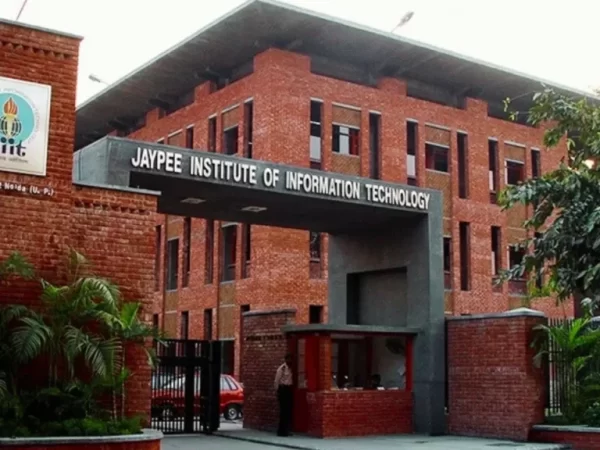In the tapestry of Indian society,Reputation Hindi Meaning reputation holds a profound significance. Known as “pratishtha” in Hindi, reputation encompasses more than just one’s image; it reflects a complex interplay of values, traditions, and social perceptions. In this article, we embark on a journey to unravel the deep-rooted cultural significance of reputation in Hindi parlance.
1. Etymology of “Pratishtha”Reputation Hindi Meaning :
Delving into the linguistic origins of “pratishtha,” we uncover its Sanskrit roots. “Prati” translates to “towards” or “for,” while “stha” means “to stand” or “to be established.” Together, they denote the establishment or standing in society, emphasizing the relational aspect of reputation.
2. Historical Perspectives Reputation Hindi Meaning:
Reputation Hindi Meaning Throughout India’s rich history, reputation played a pivotal role in shaping individual and collective identities. From ancient texts like the Vedas to epics like the Ramayana and Mahabharata, characters’ reputations often determined their fates and societal roles. The concept of “pratishtha” was not merely a personal attribute but a reflection of one’s adherence to societal norms and values.
3. Moral and Ethical Dimensions:
In Hindi culture, Reputation Hindi Meaning reputation is intricately linked with moral and ethical values. Upholding one’s reputation entails adhering to dharma (righteousness) and maintaining integrity in actions and interactions. A tarnished reputation can have far-reaching consequences, impacting not only the individual but also their family and community. Stories from Indian mythology and folklore often illustrate the consequences of compromising one’s reputation for personal gain.
4. Social Dynamics and Hierarchies:
Within Indian society, reputation operates within a complex web of social dynamics and hierarchies. Status and prestige are closely intertwined with reputation, influencing access to opportunities, resources, and social circles. The concept of “samaaj ki nazar” (society’s gaze) underscores the collective scrutiny individuals face regarding their conduct and reputation. High levels of respect and honor are accorded to individuals and families with impeccable reputations, while those with blemished reputations may face exclusion or marginalization.
5. Role in Interpersonal Relationships:
Reputation serves as a cornerstone in interpersonal relationships, shaping trust, respect, and reciprocity. Reputation Hindi Meaning Marriages, business transactions, and alliances often hinge on families’ reputations, highlighting the intergenerational transfer of reputation and its impact on social mobility. In many communities, the reputation of a family is carefully evaluated before entering into any significant relationship or partnership. Trust is built over time through consistent behavior and adherence to societal norms.
6. Cultural Expressions and Traditions:
Expressions of reputation abound in Hindi culture, Reputation Hindi Meaning manifesting in rituals, customs, and traditions. From elaborate ceremonies like weddings to everyday interactions in communities, reputation influences social interactions and expectations, reinforcing norms of honor and propriety. The concept of “izzat” (honor) is closely associated with reputation, and individuals go to great lengths to protect their honor and that of their families. Practices such as “izzat bachao” (protecting honor) reflect the cultural importance placed on maintaining a positive reputation.
7. Contemporary Relevance:
In today’s interconnected world, reputation takes on new dimensions with the advent of social media and globalization. Reputation Hindi Meaning Individuals navigate virtual spaces while balancing their offline reputations, underscoring the fluid nature of reputation and its susceptibility to public scrutiny and perception. The rise of online platforms has democratized the dissemination of information, but it has also exposed individuals to reputational risks such as cyberbullying, online defamation, and viral misinformation. Managing one’s reputation in the digital age requires vigilance, authenticity, and strategic communication.
8. Challenges and Controversies:
Reputation Hindi Meaning Despite its revered status, reputation is not immune to controversies and challenges. Instances of defamation, character assassination, and online trolling highlight the fragility of reputation in the digital age, raising questions about accountability and ethical conduct. The proliferation of fake news and misinformation can damage reputations irreparably, underscoring the need for critical media literacy and responsible online behavior. Legal frameworks exist to address reputational harm, but prevention and proactive reputation management are often more effective in safeguarding one’s reputation.
9. Strategies for Reputation Management:
Given its importance, individuals and organizations employ various strategies for reputation management. Building trust, maintaining transparency, and addressing concerns proactively are essential steps in safeguarding one’s reputation and credibility. Reputation management encompasses both reactive and proactive measures, including crisis communication plans, online reputation monitoring, and stakeholder engagement. Authenticity and consistency are paramount in shaping perceptions and fostering trust over time.
10. Cultural Resilience and Evolution:
As Indian society evolves, so does the concept of reputation. While traditional values endure, new interpretations and expressions of reputation emerge, reflecting shifting norms and aspirations. Despite these changes, the cultural significance of reputation remains deeply ingrained in the fabric of Hindi society. The resilience of cultural norms surrounding reputation underscores their enduring relevance in navigating social interactions and relationships.
Conclusion:
In conclusion,Reputation Hindi Meaning the exploration of reputation’s Hindi meaning unveils its multifaceted nature and enduring significance in Indian culture. Beyond mere perception, reputation embodies the collective conscience and values of a society, shaping individuals’ identities and interactions. As we navigate the complexities of reputation in the modern world, honoring its cultural roots reminds us of the intrinsic value of integrity, trust, and respect.
FAQs (Frequently Asked Questions):
1. What is the literal translation of “pratishtha” in EnglishReputation Hindi Meaning ?
Reputation Hindi Meaning The literal translation of “pratishtha” is “standing or establishment towards” in English, emphasizing the relational aspect of reputation.
2. How does reputation impact social mobility in Hindi society?
Reputation influences social mobility by shaping access to opportunities, resources, and social circles. Individuals from reputable families often enjoy advantages in education, employment, and marriage prospects.
3. Are there instances where reputation conflicts with personal values or aspirations?
Yes, individuals may face dilemmas where societal expectations clash with personal values or aspirations. Balancing reputation with authenticity and individuality requires navigating complex social dynamics and making conscious choices.
4. How has social media influenced the perception and management of reputation?
Social media has amplified the visibility and impact of reputation, enabling rapid dissemination of information and opinions. Managing reputation online necessitates vigilance, authenticity, and responsiveness to feedback and criticism.
5. Can reputation be rebuilt after a setback or scandal?
Rebuilding reputation after a setback or scandal is possible but requires concerted effort, humility, and consistent demonstration of integrity. Genuine remorse, transparency, and positive actions can contribute to restoring trust and credibility over time.
Also read : Cockroach in Hotel Room: 10 Insider Tips for Prevention












